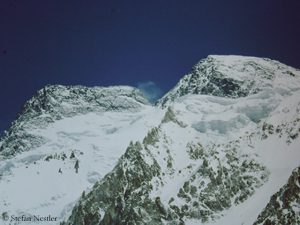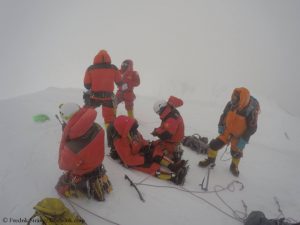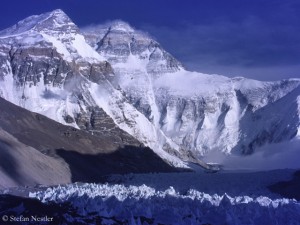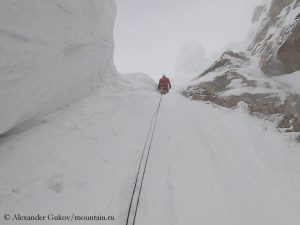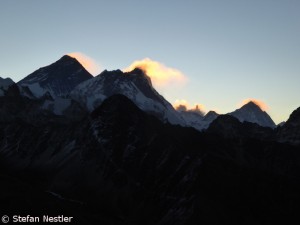High or highest point of Broad Peak?
Chroniclers of mountaineering in the Himalayas and Karakoram like the Germans Billi Bierling and Eberhard Jurgalski are in an unenviable position. On the one hand, in the age of commercial climbing, they are facing a real flood of success reports which can hardly be overcome. On the other hand, summit successes are reported, which in fact are none because the climbers did not reach the highest point. “It’s getting harder and harder,” Billi Bierling told me some time ago. Following the retreat of the legendary chronicler Elizabeth Hawley (now 93 years old), Billi is now in charge of leading the Himalayan Database. “Actually, I’m inquiring closely. But sometimes I just want to have more time,” said Bierling. She assumed that most climbers were still honest, but sometimes the truth was “a bit distorted”, she complained.
It is disputed now whether the Nepalese expedition leader Mingma Gyalje Sherpa really led his group to the highest point of Broad Peak on 4 August, at the end of the summer season in Karakorum. Eberhard Jurgalski has compared Mingmas video, which was recorded in snow drifting, with other summit videos and photos from Broad Peak and concludes that the group has not reached the highest point of the eight-thousander but a different elevation on the summit ridge, at least 45 minutes away from the summit and about 25 meters lower than this.
In doubt, better once more
The Swede Fredrik Sträng, who didn’t belong to Mingmas team, but reached along with them the turning point, has publicly stated that he was abandoning his claim of summiting Broad Peak. “I am not 100 % sure any more if we truly made it to the main summit or not,” Fredrik wrote on Facebook and announced that he would return next year to climb to the top of Broad Peak without any doubt: “I don’t want to blame anything, but sometimes summiting in a snow-blizzard is perhaps not a recommended thing and blindly trusting someone who gets irritated when you ask him ‘Is this the summit?’ perhaps is not the best response.“ Sträng had asked a Pakistani companion three times whether they really were on top of Broad Peak. The Pakistani, who had scaled the mountain in good weather one week before, for the third time in his climbing career, had assured three times that this was the highest point.
In mid-June, Mingma Gyalje Sherpa had reached with some clients the summit ridge of Nanga Parbat – also in bad weather. Subsequently, the 31-year-old had publicly declared that he was not 100% sure whether they were really on the top. It’s not a new phenomenon that fore-summits are declared summits. So did some mountaineers on the eigth-thousander Makalu last spring. On Manaslu, it’s nearly common practice among commercial expeditions: After the fall season 2016, it turned out that most of the about 150 “summiters” had not entered the – admittedly not easily accessible – highest point but had made their “summit pictures” nearby.



